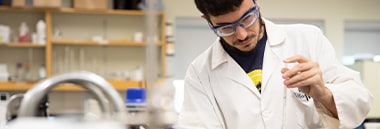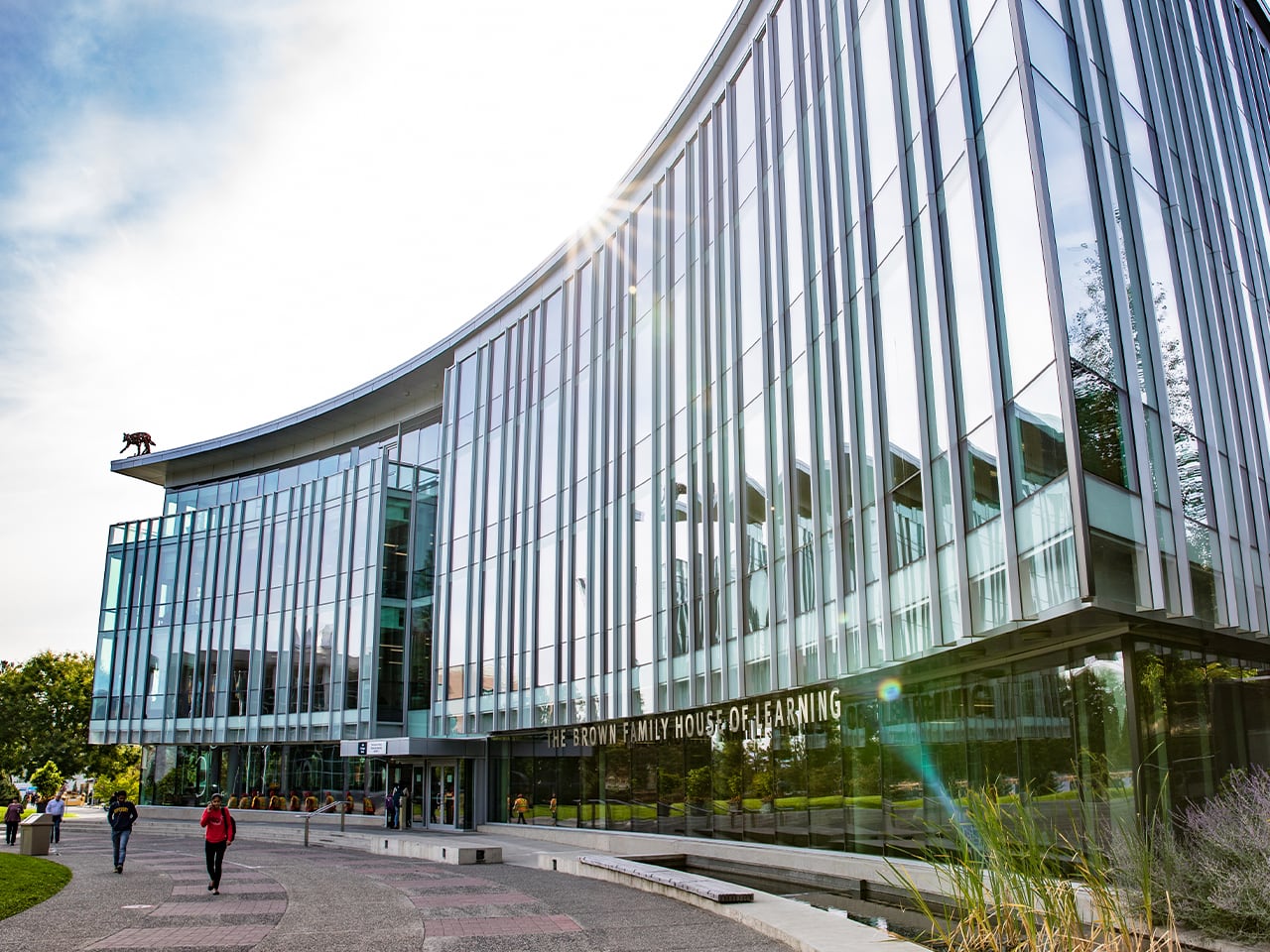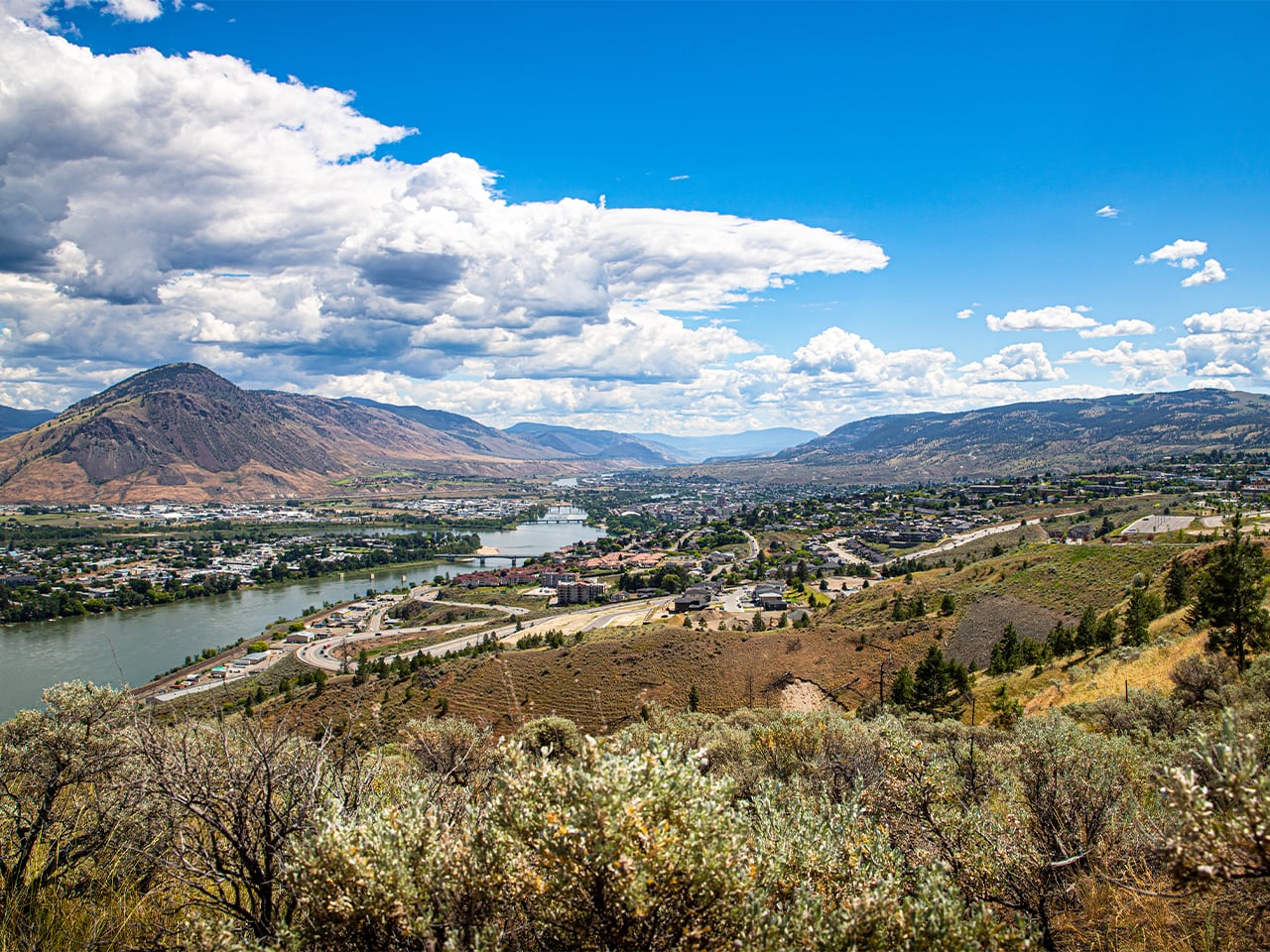See what happens when rigorous scientific study meets flexible learning pathways, personal attention and individual choice.
Do you have an appetite for asking questions? Finding answers? If you are fascinated by the natural world, science, and technology, you can excel with a Bachelor of Science. A BSc is a steppingstone to pre-medicine, graduate studies or a direct path to a promising career. At TRU, you have early access to research and can embark on your own original research project as early as year three of your studies—excellent options to ensure your resumé or graduate school application stands out.
Why pursue a Bachelor of Science at TRU?
- Access state-of-the-art lab equipment
- Conduct your own original research through UREAP scholarships
- Learn full-time or part-time, on campus, online or combine both
- Benefit from the mentorship of internationally-recognized faculty researchers
- Form genuine connections in small classes
- Access opportunities for practical experience, co-op, undergraduate research
- Study abroad and participate in international field schools
What will I learn?
We believe interests are meant to be fostered, not narrowed. The flexibility of the BSc allows you to study topics outside of chosen specializations and acquire both depth and breadth in your science education. A significant number of graduates have been successful in graduate studies and have received NSERC scholarships to continue their studies.
- Improve communication skills and computer literacy
- Access research opportunities early in your undergraduate degree
- Receive a solid foundation in science
- Develop and improve critical thinking skills
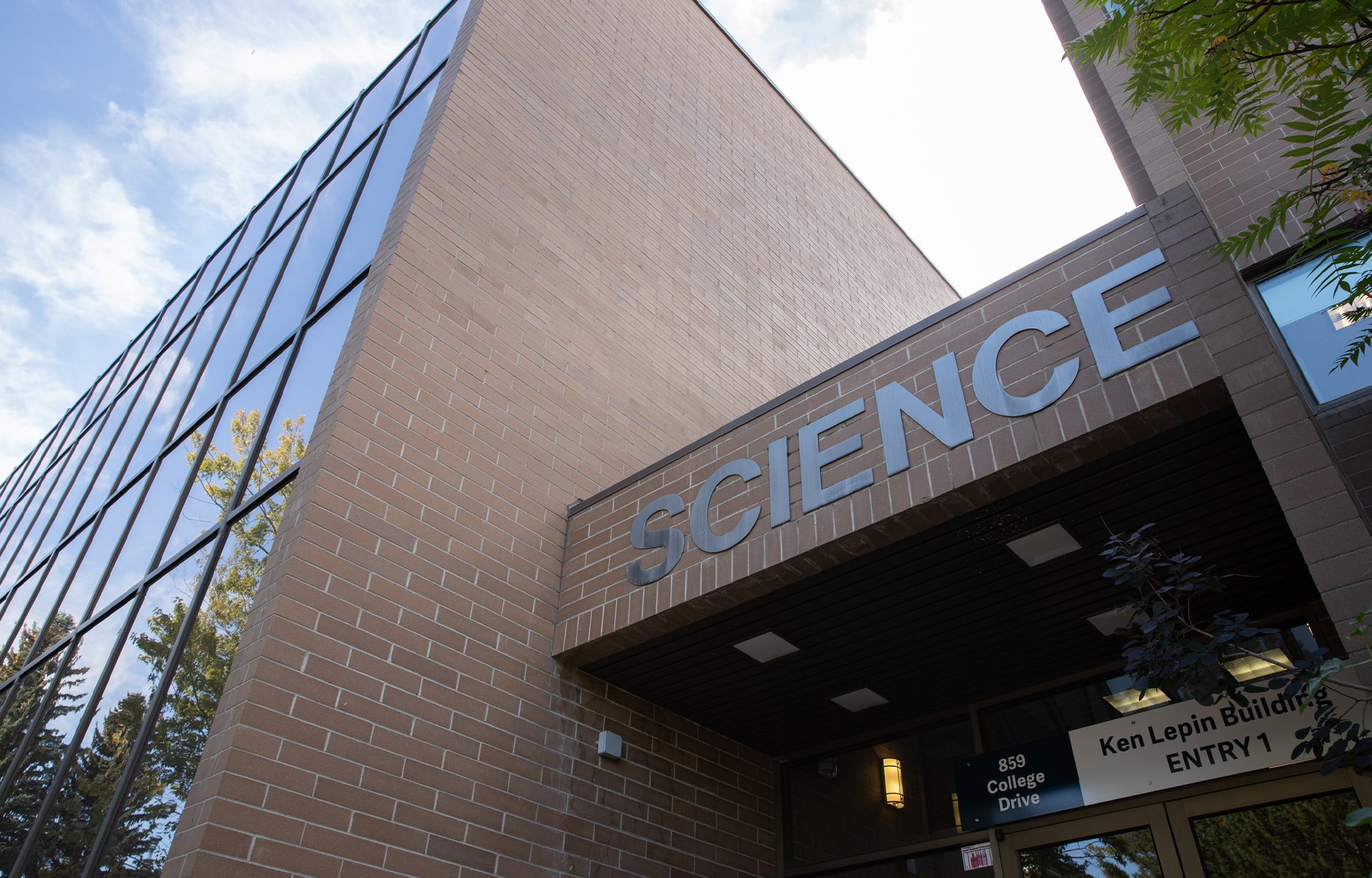
Graduates have gone on to careers in:
- Medicine
- Veterinary medicine
- Medical genetics
- Elementary and high school teaching
- Resource management
- High tech industry
- Biotechnology
- Optometry
- Pharmacy
- Dentistry
- Wildlife management
- Respiratory therapy
Program requirements vary based on program path. View specific science majors to see full program requirements.
- Bachelor of Science, Major in Animal Biology
- Bachelor of Science, Major in Biology
- Bachelor of Science, Major in Cellular, Molecular and Microbial Biology
- Bachelor of Science, Major in Chemistry
- Bachelor of Science, Major in Chemical Biology
- Bachelor of Science, Major in Computing Science
- Bachelor of Science, Major in Computing Science and Mathematics
- Bachelor of Science, Major in Ecology and Environmental Biology
- Bachelor of Science, Major in Economics and Mathematics
- Bachelor of Science, Major in Environmental Chemistry
- Bachelor of Science, General Science
- Bachelor of Science, Major in Mathematics
- Bachelor of Science, Major in Data Science
- Bachelor of Science, Major in Physics
Admission requirements
- English Studies 12/English First Peoples 12 with a minimum of 73% (or equivalent)
Bachelor of Science majors have specific first year course requirements. It is strongly recommended that students become familiar with the prerequisite requirements for these courses before applying for admission. In general, the minimum prerequisite requirements for courses in the first year courses in the BSc programs are as follows:
| Major | Prerequisites |
|---|---|
| Biology (all majors) General Science Chemistry Chemical Biology Environmental Chemistry |
Life Sciences 11 or Anatomy & Physiology 12 with C+ (or
equivalent) or better Chemistry 11 (or equivalent) Pre-calculus 12 with a minimum C+ (or equivalent) within the past 2 years Physics 11 (or equivalent), (or PHYS 1130) |
| Computing Science Mathematics Mathematical Sciences Physics |
Chemistry 11 (or equivalent) Pre-calculus 12 with a minimum C+ (or equivalent) within the past 2 years Physics 11 (or equivalent) |
If you don’t meet the requirements
Apply and you may be eligible for admission through the Flexible Entry pathway.
This will allow you to complete your missing requirements while taking university courses in your program.
"Biology connects everything I was always interested in: being outside and learning about life on Earth."
-Mae Frank
Bachelor of Science student
"I got my hands on some pretty sophisticated instrumentation and chemical tools that I wouldn’t get elsewhere until the master or PHD level."
-Lavraj Lidher
Bachelor of Science student
"Medical school is my goal and a science degree is one of the first steps in achieving that."
-Oluwafemi Ogunyemi
Bachelor of Science student
"A co-op work term with BCLC opened many doors and I gained technical skills that helped me get other jobs."
-Francesca Ramunno
Bachelor of Science student
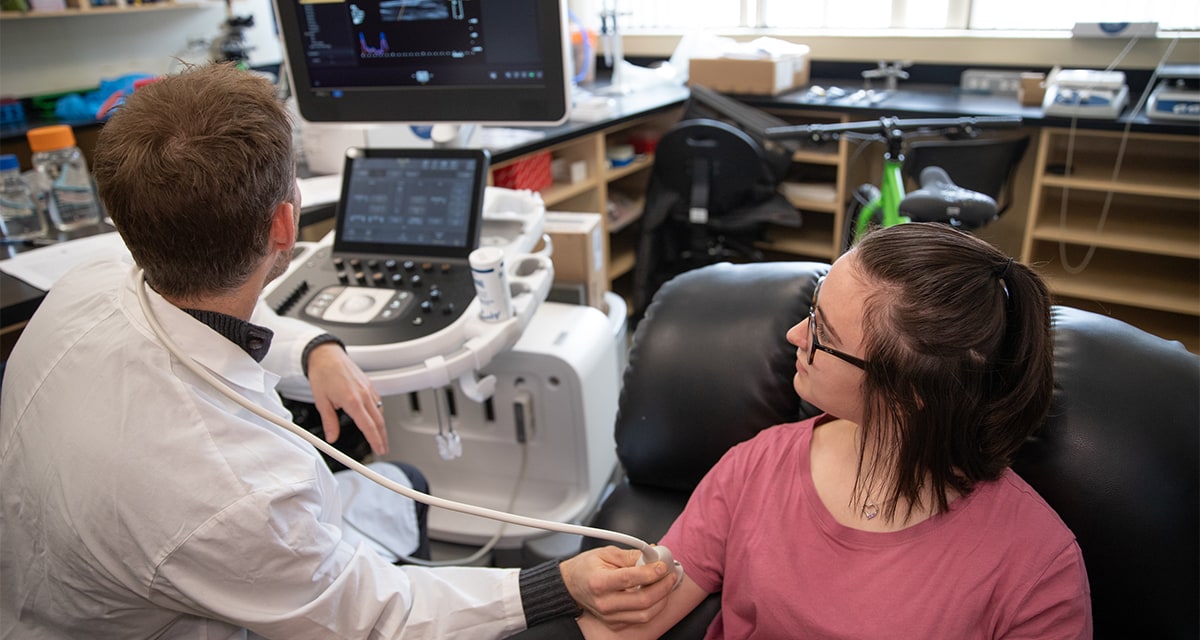
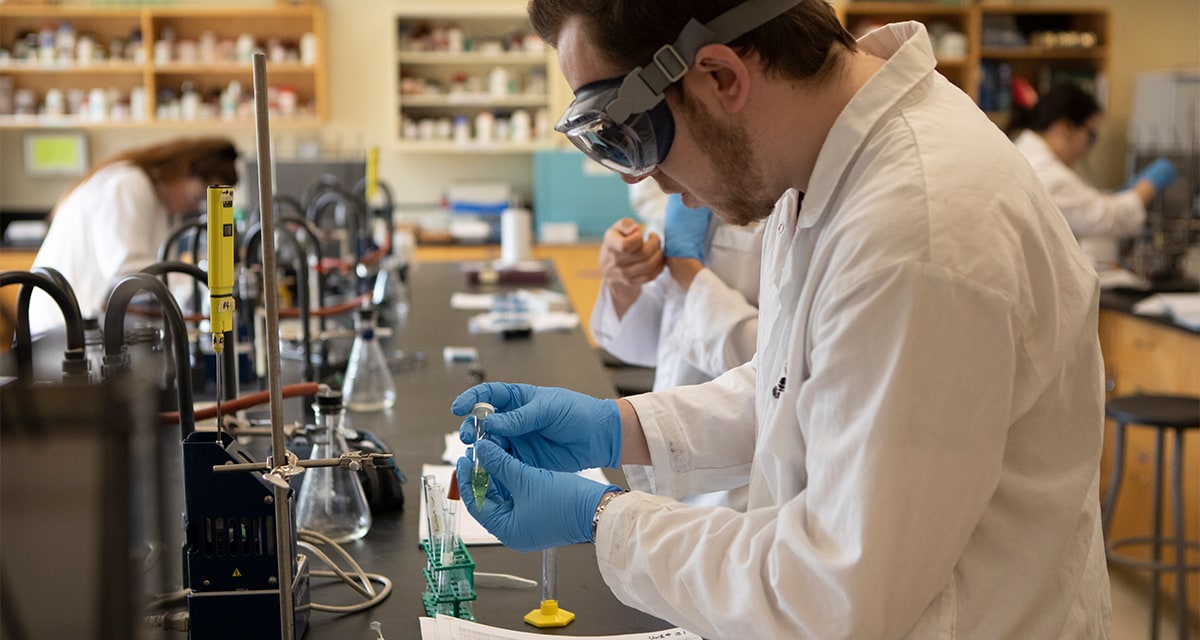
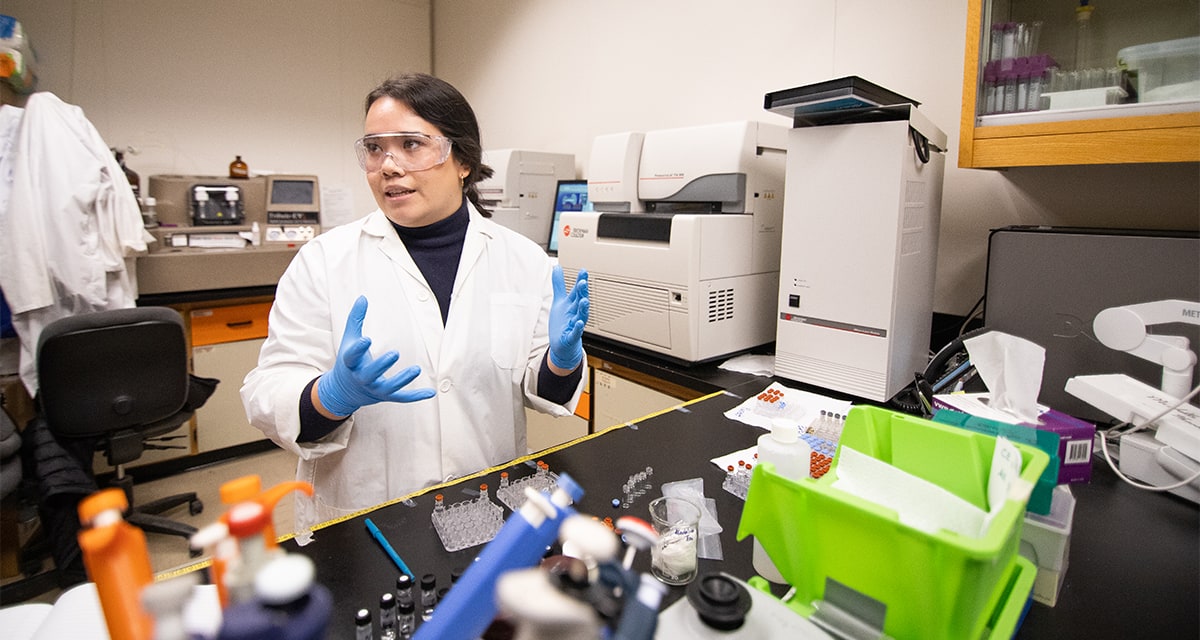
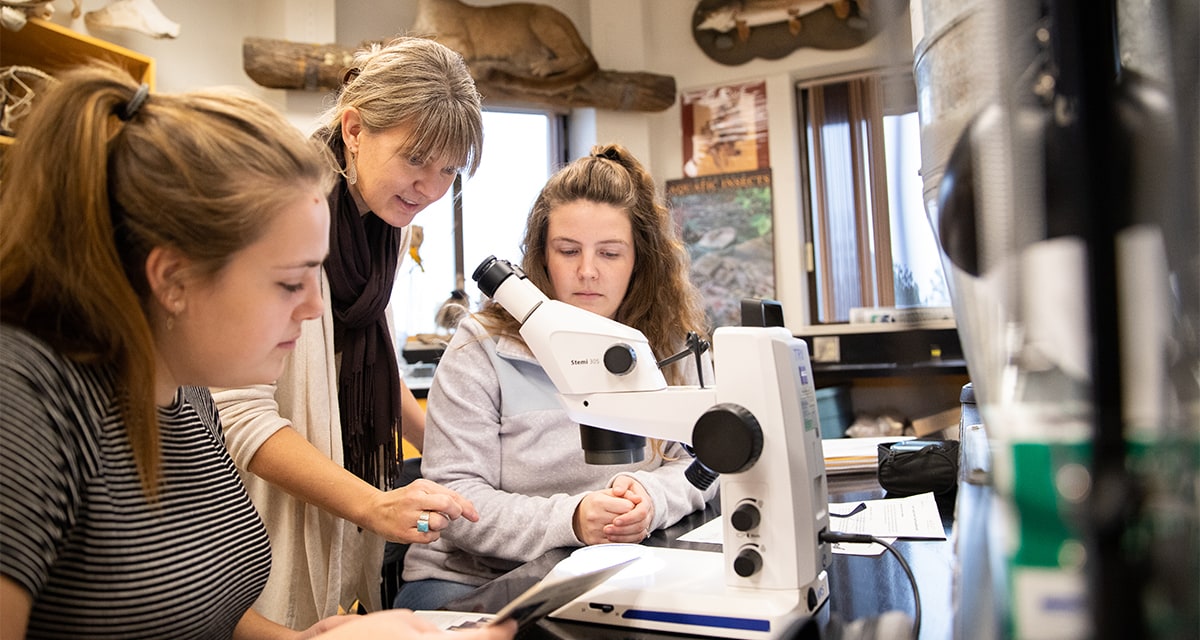
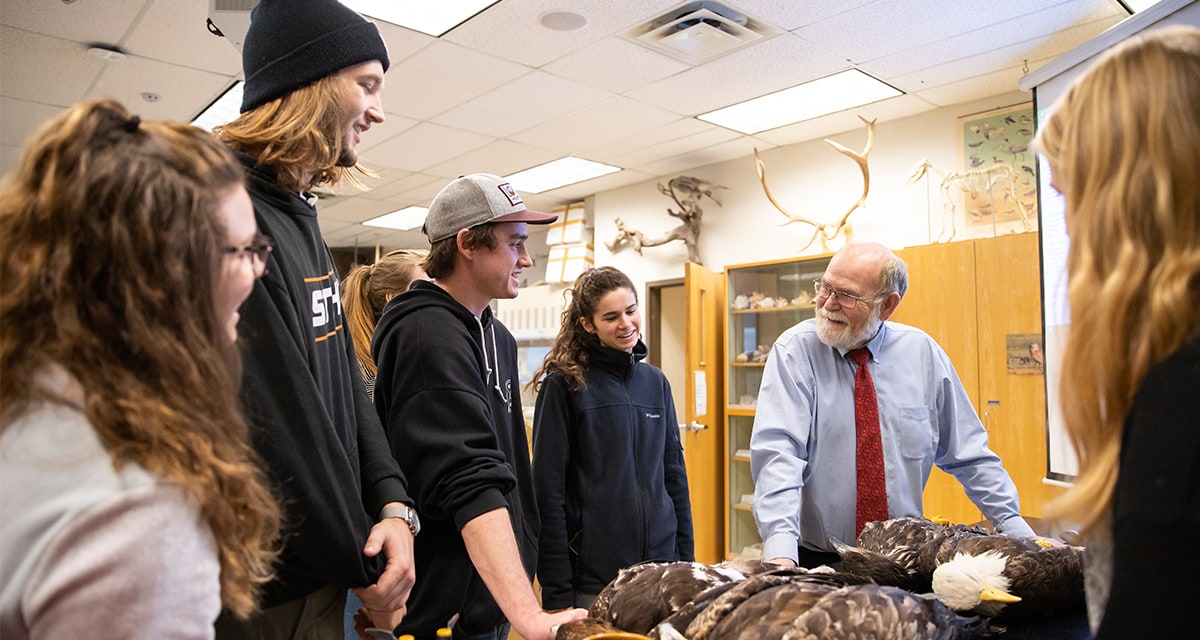
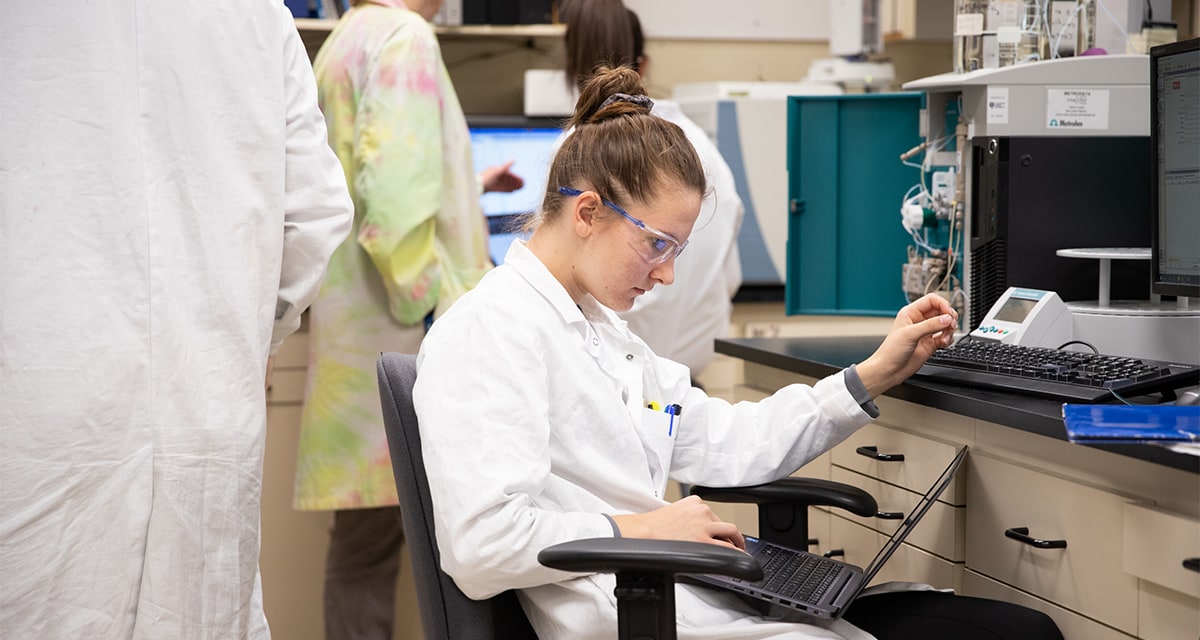
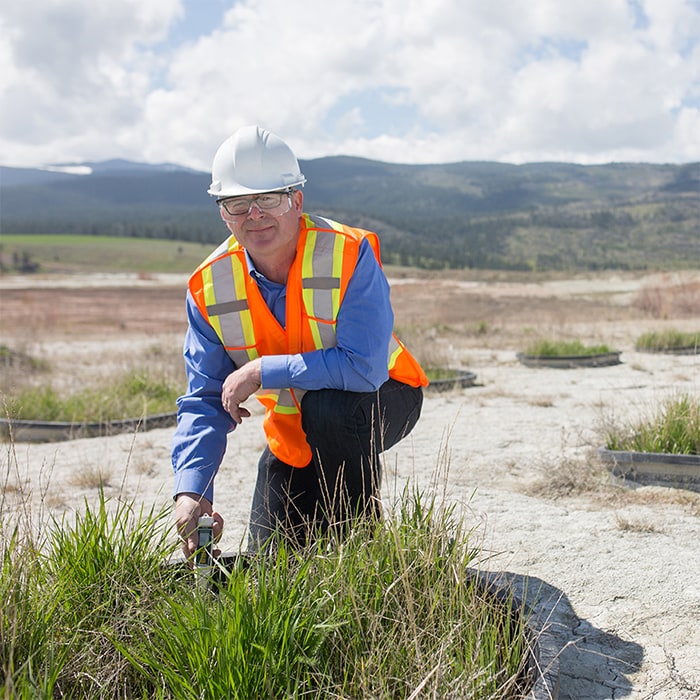
Dr. Lauchlan Fraser
Professor
Natural Resource Sciences
Dr. Fraser is NSERC Industrial Research Chair in Ecosystem Reclamation at TRU.
Dr. Fraser is a community and ecosystem ecologist who is at the forefront of research that aids in the recovery of disturbed ecosystems. Dr. Fraser has led teams of national and international researchers on reclamation research relating to soil amendments, biodiversity and climate change, with a particular focus on the Southern Interior of BC.His expertise is in grassland and wetland ecosystems, with a focus on ecosystem reclamation, biodiversity, range management, climate change, and food web theory. He is the Associate Editor of two academic journals (Applied Vegetation Science and Plant Ecology) and chair of HerbDivNet, an international network of over 60 scientists united to explore the drivers controlling herbaceous plant diversity.
Research Focus: testing the theories of community ecology, especially community composition, coexistence, complexity and species diversity.
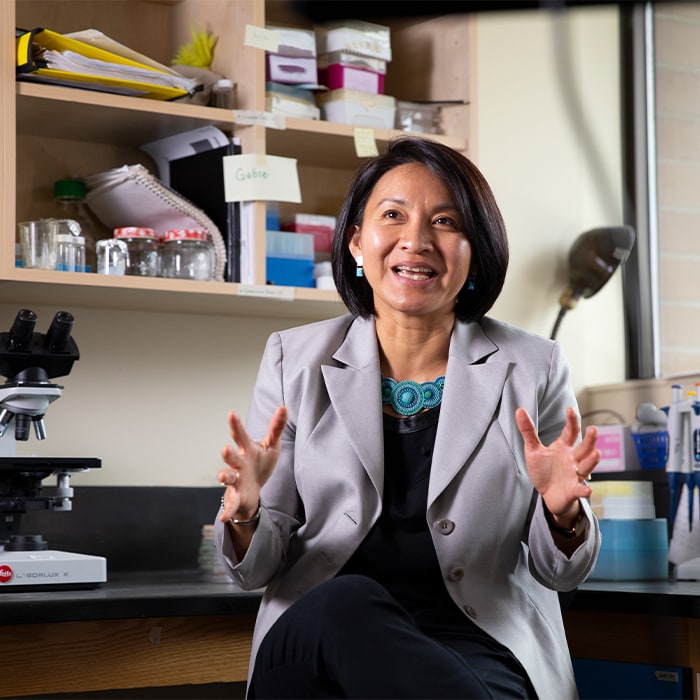
Dr. Naowarat (Ann) Cheeptham
Professor
Biological Sciences
Dr. Cheeptham's research interest and focus has included cave microbiomes/new drug discovery, white-nose syndrome in bats, and alternative treatment tools against multidrug resistant infections. Dr. Cheeptham’s work has been featured on the New York Times, Bloomberg TV network’s Spark series, Al Jazeera TV, the CBC’s Nature of Things (The Antibiotic Hunters episode), Global TV (Global 16x9 and Global Health), Knowledge Network, CBC radio (Daybreak) and in a number of International and Canadian magazines. Recently, she chief-edited and co-authored a book entitled Cave Microbiomes: A Novel Resource for Drug Discovery, published by Springer. In 2009 she was selected as one of the biology research residency scholars in the ASM/NSF Biology Research Residency Scholars Program and participated in an NSF-sponsored residency in Washington, DC.
Research Focus: microbial diversity and the search for useful natural and biochemical products, with an emphasis on antibacterial and antifungal compounds.
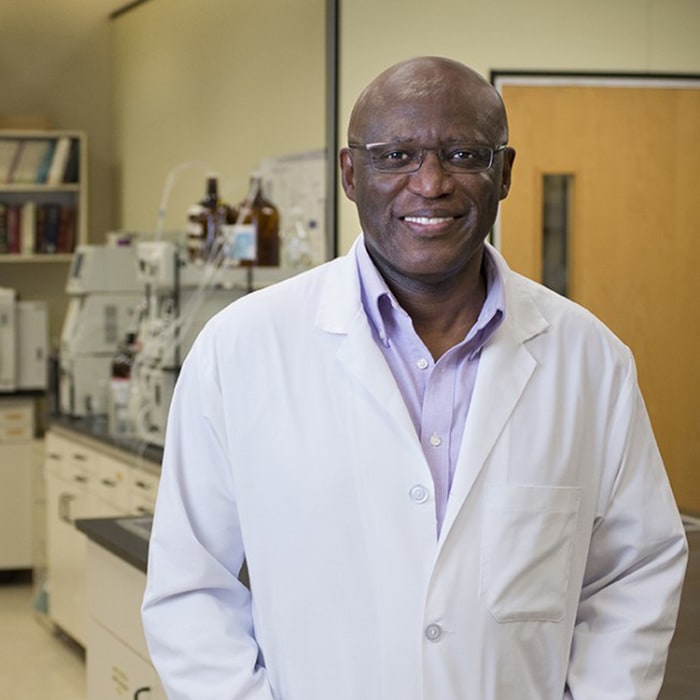
Dr. Kingsley Donkor
Professor
Chemistry
Dr. Kingsley Donkor was awarded $350,000 in 2018 for his research program designed to turn waste into fertilizer. This was the first Natural Sciences and Engineering Research Council of Canada (NSERC) Collaborative Research and Development Grant (CRD) ever awarded to a TRU researcher.Donkor, a professor in chemistry, is investigating whether the waste from biomass generators can be converted into an effective fertilizer, with the goal of diverting material from the landfill, while also creating a product that has benefit to industry and to society as a whole.
An NSERC CRD requires industrial partners, in this case Louisiana-Pacific, which provides the fly ash from its biomass plant, and Kingsclere Ranch, which has offered up to 400-acres. Both partners are based in Golden, BC.
Research Focus: the study of binding characteristics of metal-lantibiotic complexes and the application of chemometric techniques in identifying sources of pollution.
Program Details
- Credential
- Bachelor of Science
- Delivery
- Kamloops
- Length
- Four years
- Intake dates
- September, January, May
- Applications
- Now accepting applications
- International
- Open to international applicants
